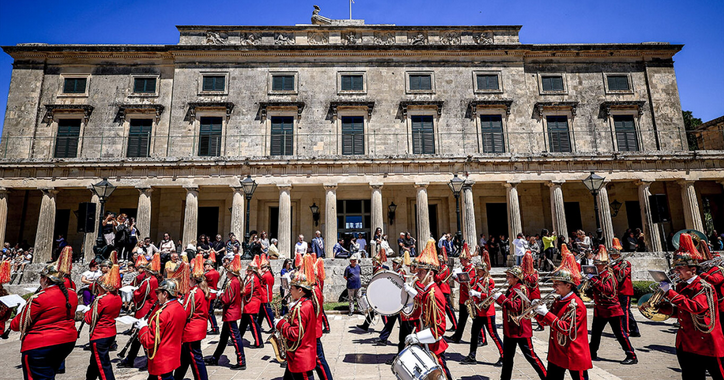A third option is being offered to citizens to have surgeries, starting March 1.
These are afternoon surgeries in hospitals, an option that escapes the long waitlist for morning, no cost, surgery in a public hospital, while being more advantageous than private hospitals.
The operational framework of the new ESY (National Healthcare System) facility was presented at a press conference at the Ministry of Health yesterday by the Minister of Health, Adonis Georgiades and the Deputy Minister of Health, Marios Themistocleous.
The immediate implementation of the afternoon surgeries implies the daily performance of a greater number of surgeries in order to serve as many citizens as possible.
According to a study carried out by the Ministry of Health, the capacity of the system with afternoon surgeries is expected to increase by more than 20%.
Surgeries are divided into six categories depending on the severity of each operation and the costing of surgeries is done at category level. In detail, the categories are as follows:
Very minor surgery: The citizen will be asked to pay €300.
Minor: The cost to the citizen will be 500 euros.
Medium: The cost to the citizen will be 900 euros.
Large: The cost will be 1,200 euros.
Heavy: The cost will be 1,600 euros.
Extremely heavy: The cost amounts to 2,000 euros.
According to the plan drawn up by the Ministry of Health, the cost of evening surgeries is much lower than in the private sector. For example, a minor operation (e.g. cataracts) in the private sector costs over €800.
Similarly, a major or heavy operation (such as hip and knee replacement) costs more than €3,500 in a private hospital.
The money paid by citizens will be shared for the fees of surgeons, anaesthetists and nursing staff. For a major operation (e.g. a cholecystectomy) the surgeon will receive €550 and the anaesthetist €350.
For a major operation (e.g. hip replacement) the surgeon will receive €750 and the anaesthetist €400, while for an extremely major operation the surgeon will receive €1,000 and the anaesthetist €450.
“We need to find a way for ESY doctors, ESY nurses and even other staff involved in morning surgeries to be able to increase their incomes in a legal way.
I am under no illusion that afternoon surgeries will eliminate all corruption, because corruption exists, and unfortunately, in Greece, we are fighting it, we are fighting it as much as we can.
I believe, however, that the way out of paid afternoon surgeries will eventually be embraced by the doctors and staff of the National Health System,” said Health Minister Adonis Georgiades.
102,000 citizens waiting for surgery
The total number of citizens registered on the Surgery List in Greece, up to the end of 2023, is 102,000.
43% of cases are waiting for surgery for less than 4 months.
From 4 to 12 months, 31% of the total List is waiting, while more than 12 months is expected by 26% of patients.
The total number of people waiting for surgery more than 4 and less than 12 months is 31,954.
For this period of time, northern Greece has the highest number of cases (44%), followed by Attica and the Aegean islands (35% of cases).
The total number of citizens waiting for surgery for more than 12 months is 26,221.
53% of these are concentrated in northern Greece.
How the choice of materials drives up the cost of surgery for hospitals
Meanwhile, a major gap in the way public hospitals operate and the way materials for surgeries are procured without competitive tendering is revealed by data gathered in an effort to better organise surgical procedures in the ESY.
Among the data, the result of a study presented yesterday by the Deputy Minister of Health, Marios Themistocleous, a table showing the wide range of costs that the same surgery can have in the ESY caused a sensation.
Specifically, a comparison of ten cases for the same surgery, coronary artery bypass, shows costs starting at €2,585 and rising to €10,725, money that strains hospital budgets.
The root of the problem for this price range is a chronic pathogenesis of the National Health System: The lack of tenders and centralized procurement.
Reportedly, the cost of the same surgery can vary due to the materials used on a case-by-case basis.
But how do public hospitals procure materials?
In most cases by direct contracting, following recommendations from doctors as to which materials are needed.
Reportedly, there are few hospitals that carry out tenders, at a time when centralised procurement is an area that unfortunately has not yet progressed in our country.
In order to put an end to the above situation and make the costs common to all clinics and all doctors when it comes to the same surgery, the Ministry of Health is moving forward with a series of interventions.
Through a monitoring system starting with a few hospitals – eight in number reportedly – there will be a picture of how much the same surgery costs per hospital.
The implementation of centralised purchasing through the National Central Health Procurement Authority (HCPA) is expected to help even more.
Until now, there was no uniform coding of materials used in public hospitals in the country.




































